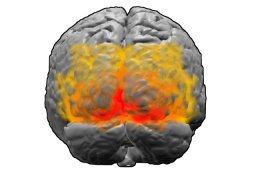Wishful thinking
Wishful Thinking is a psychological phenomenon and cognitive bias that causes a person to believe that something is true or will happen based on their desires, rather than on evidence or reality. This bias can affect various aspects of life, including decision-making, beliefs, and behaviors, leading individuals to make conclusions that are more aligned with their hopes than with factual information or logical reasoning.
Definition[edit | edit source]
Wishful thinking occurs when a person's desires and preferences influence their judgments and decisions, leading them to interpret information in a way that supports their wishes. This can result in a distortion of perception, memory, and reasoning processes. The phenomenon is closely related to the concept of motivated reasoning, where individuals are motivated to arrive at a particular conclusion and selectively process information to achieve that outcome.
Mechanisms[edit | edit source]
The mechanisms behind wishful thinking involve cognitive and motivational factors. Cognitive factors include the biases and heuristics that the brain uses to process information efficiently but can lead to errors in judgment. Motivational factors involve the emotional investment in the desired outcome, which can overshadow objective assessment of facts.
Examples[edit | edit source]
Wishful thinking can manifest in various contexts, such as:
- In finance, investors might overestimate the potential returns of an investment because they desire financial gain.
- In health, individuals might believe that they are less susceptible to diseases or that alternative medicine can cure serious illnesses without scientific evidence supporting these beliefs.
- In relationships, people might convince themselves that a partner has feelings for them based on minimal evidence because they desire reciprocation.
Consequences[edit | edit source]
While wishful thinking can sometimes have positive effects by boosting motivation or optimism, it often leads to poor decision-making and unrealistic expectations. In the long term, this can result in disappointment, financial losses, or adverse health outcomes when the reality fails to match one's hopeful projections.
Counteracting Wishful Thinking[edit | edit source]
To counteract wishful thinking, individuals can practice critical thinking and seek out objective evidence before making decisions. Being aware of this bias and actively questioning one's motivations and assumptions can also help mitigate its effects.
See Also[edit | edit source]
Navigation: Wellness - Encyclopedia - Health topics - Disease Index - Drugs - World Directory - Gray's Anatomy - Keto diet - Recipes
Search WikiMD
Ad.Tired of being Overweight? Try W8MD's physician weight loss program.
Semaglutide (Ozempic / Wegovy and Tirzepatide (Mounjaro / Zepbound) available.
Advertise on WikiMD
WikiMD is not a substitute for professional medical advice. See full disclaimer.
Credits:Most images are courtesy of Wikimedia commons, and templates Wikipedia, licensed under CC BY SA or similar.Contributors: Prab R. Tumpati, MD



